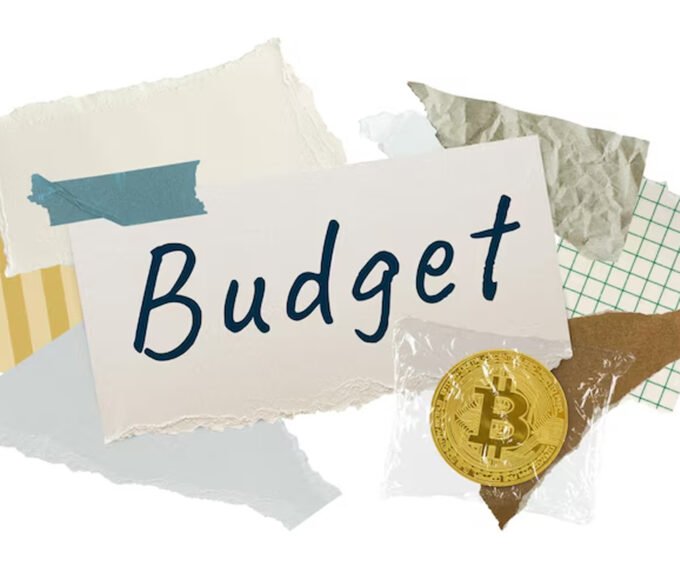8 Tips for How to Save Money if Your Paycheck Is Stretched Thin
Here are eight practical tips to help you save money when your paycheck feels stretched thin.

It can feel like a constant struggle when your paycheck barely covers your essential expenses, leaving little to nothing for savings. Many people find themselves in this situation, but it’s important to know that even with a tight budget, there are steps you can take to save money. It requires discipline and making some changes, but these small adjustments can add up over time and provide a much-needed financial cushion. Here are eight practical tips to help you save money when your paycheck feels stretched thin:
1. Track Your Spending Meticulously
The first step to saving is understanding where your money is actually going. For one month, keep a detailed record of every single expense, no matter how small. Use a notebook, a spreadsheet, or a budgeting app to track everything from your morning coffee to your rent payment.
Once the month is over, review your spending. You might be surprised to see how much you’re spending on non-essential items. Identifying these areas is the first step toward making cuts.
2. Create a Realistic Budget and Stick to It
Based on your spending habits, create a budget that allocates your income to different categories like housing, food, transportation, and entertainment. Be realistic about what you can afford and prioritize essential expenses.
The key to a successful budget is consistency. Track your spending against your budget throughout the month and make adjustments as needed. There are many budgeting methods, so find one that works best for you, whether it’s the 50/30/20 rule or a zero-based budget.
3. Cut Unnecessary Expenses Ruthlessly
Once you have a budget, identify areas where you can cut back. Look for non-essential expenses that you can eliminate or reduce. This might include things like:
- Entertainment: Reduce eating out, cancel subscriptions you don’t use often, or find free activities.
- Convenience: Make your own coffee instead of buying it daily, pack your lunch, and reduce impulse purchases.
- Shopping: Avoid unnecessary shopping trips and wait before buying non-essential items to see if you really need them.
Even small daily savings can accumulate significantly over weeks and months.
4. Look for Ways to Reduce Fixed Costs
While some expenses like rent or mortgage payments are fixed, there might be ways to reduce them. Explore options like:
- Refinancing: If interest rates have dropped, refinancing your mortgage or other loans could lower your monthly payments.
- Insurance: Shop around for better rates on your car, home, or health insurance.
- Utilities: Conserve energy by turning off lights, unplugging electronics, and adjusting your thermostat. Look for ways to reduce water consumption as well.
- Communication: Evaluate your phone, internet, and cable plans to see if there are more affordable options that still meet your needs.
5. Automate Your Savings
One of the most effective ways to save is to make it automatic. Set up a recurring transfer from your checking account to your savings account each payday. Even a small amount transferred regularly can grow over time.
Treat your savings like any other bill that needs to be paid. By automating the process, you’re less likely to skip saving and more likely to build a consistent savings habit.
6. Find Ways to Earn Extra Income
If your income is truly stretched thin, consider exploring ways to earn extra money. This could involve:
- Side hustles: Offer your skills or services on a freelance basis, such as writing, graphic design, or tutoring.
- Selling unused items: Declutter your home and sell items you no longer need online or at a consignment shop.
- Part-time work: If your schedule allows, consider taking on a part-time job to supplement your income.
Any extra income you earn can be directly allocated to savings.
7. Prioritize Paying Down High-Interest Debt
High-interest debt, such as credit card balances, can eat away at your income and make it harder to save. Focus on paying down these debts as quickly as possible. Consider strategies like the debt snowball or debt avalanche method to stay motivated.
Once you’ve eliminated high-interest debt, the money you were using for those payments can be redirected to savings.
8. Be Patient and Persistent
Saving money when your paycheck is tight takes time and effort. Don’t get discouraged if you don’t see significant results immediately. Small, consistent efforts will eventually add up.
Celebrate small victories along the way to stay motivated. Review your budget and savings goals regularly and make adjustments as needed. The key is to be persistent and make saving a long-term habit.
Saving money when your paycheck feels stretched thin is challenging but not impossible. By tracking your spending, creating a budget, cutting unnecessary costs, reducing fixed expenses, automating savings, exploring extra income opportunities, prioritizing debt repayment, and remaining patient, you can start building a financial safety net. These small, consistent steps can make a significant difference in your financial well-being over time, providing you with greater security and peace of mind. Remember that every little bit you save brings you closer to your financial goals.
Recent Posts
Related Articles
Is It Time for Africa to Rethink Its Approach to Diaspora Capital?
In 2023, over $90B was sent back to Africa by its global...
ByTrendit AfricaNeed Money Now? These 6 Side Hustles Are Winning in Africa
Here are six winning options that are empowering individuals to boost their...
ByTrendit AfricaBudgeting 101: How to Budget Money
Here’s a step-by-step guide on how to create a budget that works...
ByTrendit AfricaWhy You Need to Reinvest Half of What You Earn Back Into Your Company
Profit feels good — but don’t blow it all. Reinvesting half of...
ByTrendit Africa















Leave a comment